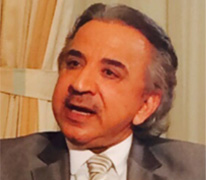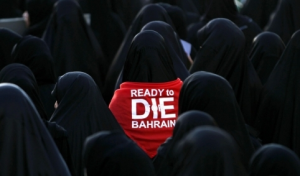Double efforts to minimize woman movement in Bahrain
Double efforts to minimize woman movement in Bahrain
In the mid-fifties of the previous century and during one of mass demonstrations, an unveiled young girl surprised the protesters and came to the forefront of that demonstration, leading the participants and reiterating slogans of that period “down with colonialism” and “down with reactionism”. The participation of a female at such an event where she was likely to be faced with the shots and batons of the British soldiers and local police was unprecedented. Since then Bahrain women’s participation and activism have come a long way, most notably during the 1990’s uprising. When Shaikh Hamad bin Isa Al Khalifa came to power in 1999, he made several political reforms. Those reforms contributed in the manifestation of many new sectors and opened regulatory frameworks, which have helped Bahraini women involvement in various aspects of the public domain. Consequently, many women’s names have emerged at forefront of civil society organizations, including: trade unions and human rights associations, as well as associations that are concerned with protection against domestic violence and violence against children. Moreover, we have noticed many women’s names in the interface of activities of political opposition forces. However, all of this was not reflected in the parliamentary elections results in the year 2002, which was boycotted by all opposition forces. Nevertheless, the personal intervention of the Prime Minister and the King’s wife in the face of opposition from Sunni societies, the Salafis and the Brotherhood, has led to one woman becoming the deputy in the parliament of 2002 by acclamation. They participated in activism outside of parliament The opposition’s organizations participated in the elections following that period; in both years 2006 and 2010, respectively. However, not one of women election candidates has succeeded. It is easy to interpret the “women’s failure” as reference to traditional male dominance in Bahraini voters, in addition to ideas of “men are in charge of women”, but this interpretation is not enough as it does not reveal the positive attitudes from Bahraini culture towards women’s participation in various other arenas and sectors. This is why we need to focus on both the role of the official authorities as well as the clergy in preventing women from overcoming the traditional limitations when it comes to women’s activism within the political and parliamentary arenas. The beliefs of both official authorities and clergy (Sunnis and Shiites) are inconsistent in many things, which has put a strain on their relationship from time to time. However, both of them agree to put a limit on women from fully playing her political, economic and social role as equals to men in a democratic culture. This shared belief is evident when looking at their reactions towards women’s attempts to join parliament. Both Sunni and Shiite religious organizations have refrained from nominating women in parliamentary elections. Moreover, both Salafi and Muslim Brother organisations strongly supported the efforts of the authorities to thwart the efforts of progressive female elections candidates in 2006 and 2010 parliamentary elections. Whereas for instance: Dr. Monera Fakhro was able to reach the second cycle in the last elections while facing stiff competition from religious candidates, the authorities manipulates the vote by stirring the military voters in favour of her opposition. It is strange that Al-Wefaq, an Islamic Shiites society, who strongly supported Dr. Fakhro, have rejected adding a single female nominee to their election list which has succeeded across the boards in the 2006 and 2010 parliamentary elections. This is even more notable as Al-Wefaq consider women to be a vital part of their structure. However, their stance is consistent with the conservative approach of Al-Wefaq’s religious authority Sheik Issa Qassim who was a deputy in the 1973 parliament and led campaign aiming to enact laws in favour of segregation between genders across the education and health services. Shahla’s Khalfan Granddaughters When winds of uprising blew in the pearl roundabout, the signs of social and cultural changes, which have been accumulating since the 1990s, accelerated in their emergence. The signs of these changes remained hidden under the covers of political confrontation between the authorities and their supporters on one hand and the opposition and their supporters on the other. However, the details of the clashes that have emerged over the last year and a half since the entry of the Saudi troops to suppress the protesters in Pearl Roundabout clarified the emergence of real change and forced the stakeholders on both sides of the opposition and the authorities to recognise the central role played by women in the political movement. Youth from both sexes have endured the efforts for Arab spring in Bahrain, away from the eyes of both the authorities and the recognized opposition organisations, and against their will. After the protestors success in claiming the Pearl Roundabout as a centre of protests and sit-ins, it became impossible to limit the role of women to “build momentum” or at best to “providing aid and assistance”. We saw the dreams of women activists from pre-independence come alive in the form of women in the ages of their granddaughters, both veiled and unveiled, who were taken real roles of leadership both on the public and private arenas. After the entry of Saudi force in 15th of Mars 2011, the authorities didn’t differentiate between men and women, For instance: the authorities arrested thousands of activists, amongst them hundreds of women, including housewives, teachers, journalists, physicians, engineers, students and the unemployed. In addition, hundreds of women were dismissed from their jobs, or punished by disciplinary committees which deducted their salaries and demoted their ob roles. Moreover, women now faced the same inhumane punishments as men including sexual harassment and rape. Through looking at the testimonies of men and women, you can clearly see that the authorities did not discriminate on the basis of gender when it came to suppressing them. Rein attempts The participation of Bahraini women activists in the "uprising of February 14", in particular their leading role in the daily unfolding of the uprising whether in support of the authorities or opposition, constitutes as an unprecedented challenge to the legacy which previous to that has seen woman portrayed as mere supporters to men. Furthermore, the challenge has continued even after entry of Saudi troops and the declaration of a state of emergency. In addition to women’s prominent roles in the fields of media and human rights organisations there were also teams of lawyers who formed to defend the arrested men and women. In fact, women constituted the majority of participants in many protest demonstrations in various areas, including the capital Manama. In order to suppress this clear challenge to the authorities we saw an increase in cases of harassment against women both in police stations and check points, in addition to the increase of women activists being called in for investigations or re-instigation by the authorities. In addition rumours were spread about so-called "recruits", i.e. women who are recruited by the security forces to spy on the activists or implicate them in ethical scandals. It was clear that the aim of the authorities was to push families to prevent their daughters from participating in acts of protest, for fear of sexual harassment or to avoid accusations of them being labelled as "recruits”. At the same time, opposition’s leaders have asked women “to stay from direct – clashes with security forces”; fearing for their dignity and chastity. Although this statement was rejected by Bahraini women activists, the Secretary-General of Al-Wefaq Society thought that it is necessary to repeat it in a recent published interview, adding that women should be in more supportive roles which are in keeping with their nature “without being exposed to arrest, and to be peaceful and avoid clashes”. Of course there is no direct link between the harassment that carried out by authorities against Bahraini women and the rumours which have been spread that aimed to discredit their reputation, or the efforts of conservatives in the opposition sides which aimed to keep the women away from clashes area, under the pretext of protect their chastity. And yet the results of all of that will be the same thing, which means that what has been achieved by women under the Arab spring is not yet complete in Bahrain. Conversely, the authorities haven’t succeeded in intimidating the women activists by targeting them at the security checkpoints or in jails or by spreading negative rumours. On the other hand, facing the clergy demand to the women “keep away from clashes zone” will result in more than just objections on the social networking sites. The good news is that the women’s movement experienced since Shahla Khalfan fifty-six years ago in a demonstration reiterating slogans “down with colonialism and down with reactionism”, has contributed in helping Bahraini women to be an active part in the conflict in order to change, and not just as a tool for conflict and agreement between the authorities and the opposition. Written by: Abdulhadi Khalaf, Bahrain Spring website: http://bahrainspring.com/

